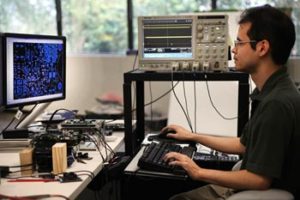Unlocking Faster Turnaround Times
 Device Support Engineers are crucial to the development of accurate and reliable programming support for programmable devices. Their role involves researching the device’s architecture, understanding its programming requirements, and developing algorithms to program the device. Here’s a closer look at the key responsibilities and skills required of DS engineers:
Device Support Engineers are crucial to the development of accurate and reliable programming support for programmable devices. Their role involves researching the device’s architecture, understanding its programming requirements, and developing algorithms to program the device. Here’s a closer look at the key responsibilities and skills required of DS engineers:
Responsibilities of DS Engineers
- Research device specifications: DS engineers must research and understand the specifications of the device to determine its programming requirements. They must analyze the device’s architecture and functionality to develop accurate and reliable support.
- Develop algorithms for programming devices: DS engineers use their knowledge of programming languages, scripting, and automation tools to develop algorithms for programming semiconductor devices. They write code optimized for performance and accuracy based on the device’s architecture and functionality.
- Collaborate with other teams: DS engineers work closely with hardware and software engineers to troubleshoot issues and ensure that the device functions correctly. They collaborate to ensure that the device meets performance specifications.
Skills Required of DS Engineers
- Programming proficiency: DS engineers must be proficient in programming languages such as C, C++, Python, etc. They must be familiar with scripting and automation tools to optimize the programming process.
- Analytical and problem-solving skills: DS engineers must have strong analytical and problem-solving skills to identify the root cause of issues that arise during the programming process. They must be able to develop solutions to fix problems (“bugs”) quickly.
- Communication and collaboration skills: DS engineers must have excellent communication and collaboration skills to work effectively with other teams. They must be able to communicate complex technical information effectively and work collaboratively to ensure the device functions correctly.
Investing in DS Engineers
Companies that invest in developing their device support engineers can develop accurate and reliable support faster and more efficiently, leading to a competitive advantage. With new devices and technologies constantly emerging, DS engineers must continuously stay up-to-date with the latest programming languages, tools, and hardware platforms to adapt quickly to new development environments and technologies.
BPM has invested heavily in developing its DS engineer teams, doubling resources over the last 2 years. Becoming proficient in this role can take months of on-the-job training, working with other more experienced engineers. BPM’s investment is working: development times for average complexity projects have dropped from 10 or more weeks to an average of 2 to 4 weeks!
Conclusion
Device support engineers play a critical role in developing accurate and reliable support for programmable devices. They must have a deep understanding of the device’s architecture and functionality, as well as proficiency in programming languages, analytical and problem-solving skills, and communication and collaboration skills. Companies that invest in developing their DS engineers can develop accurate and reliable support faster and more efficiently, leading to a competitive advantage in the market.
Mastering eMMC Device Programming | White Paper: Semiconductor Device programming | Production-Level Support from BPM Microsystems | Apply for BPM Software Engineer